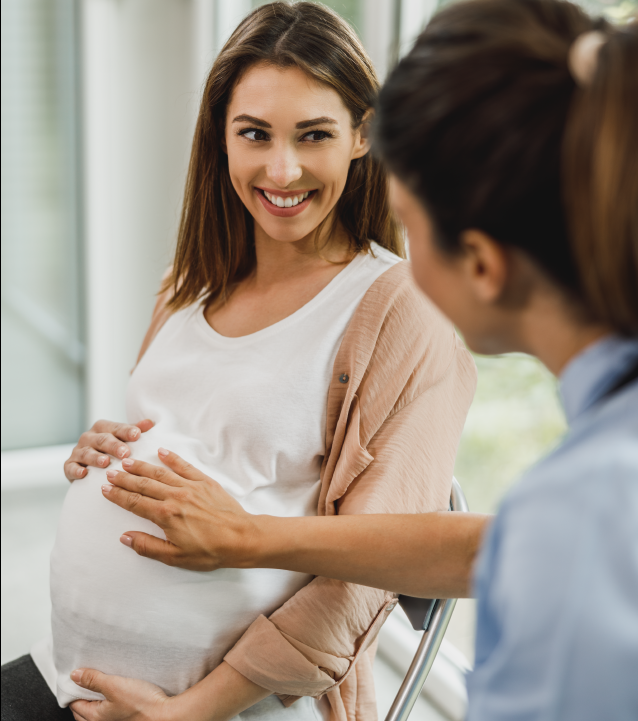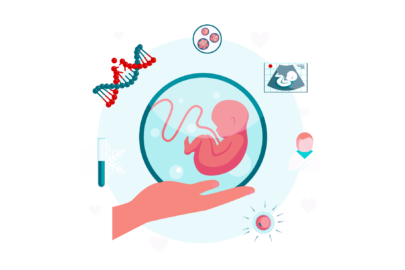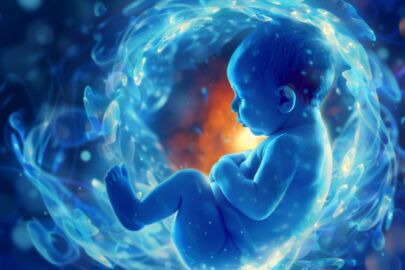
Chances of Miscarriage After IVF Pregnancy: Are You Aware of These?
IVF (in vitro fertilization) is a process that involves expecting a success and anticipating a miscarriage. Partners going through the procedure often feel as if they are on an emotional roller coaster between anxieties and high hopes.
In IVF, the time required between embryo transfer and pregnancy test is agonizingly long. The risk of miscarriage is a reality even with a successful IVF cycle. Couples often feel isolated during the journey and at times of loss and grieving. Hence, here we have compiled everything you need to know about the chances of miscarriage after IVF pregnancy.
Also read: IVF (In Vitro Fertilization): Step By Step IVF Procedure
Understanding the Chances of Miscarriage After IVF Pregnancy
Miscarriage in IVF pregnancies refers to the death of the fetus before it attains 20 weeks of growth. There are many complexities involved in embryo transfer. Hence, IVF-related miscarriages can happen at any stage after embryo implantation.
In IVF, the chances of miscarriage by week 6 or week 8 are the highest. If the IVF pregnancy successfully crosses the 12th week of gestation, and if the development of the fetus is normal, then there is very little chance for a miscarriage.
Both IVF and natural pregnancies show similar rates of miscarriage. The following factors can influence the risk of miscarriage under both circumstances:
- Age of the mother (35 and older)
- Embryo quality
- Previous miscarriages
- Certain medical conditions
- Endometrial thickness
- Conditions like polycystic ovaries
It has been observed that miscarriages happen in 18-30% of IVF cycles. Hence, it is imperative to choose clinics with good reviews and an impeccable reputation to reduce your chances of miscarriage after IVF pregnancy.
Also read: IVF Treatment in India: All You Need to Know Before the Procedure
Key Signs and Symptoms of Miscarriage at 8 Weeks
While discussing the chances of miscarriage after IVF pregnancy, it is necessary to know the warning signs. These can include:
- Vaginal bleeding (heavy bleeding or spotting)
- Abdominal Pain/Cramping
- Passing Tissue/Clots
- Significant and sudden decrease in pregnancy symptoms
- Lower Back Pain
- Pelvic Pain
- Pinkish or Greyish Vaginal Discharge
If you see any of these signs and symptoms of miscarriage at 8 weeks or before, you should seek medical attention as soon as possible.
Further, women with IVF pregnancies should also consider the following while looking for warnings:
- Hormonal support during IVF pregnancies, like progesterone, can alter or mask the usual symptoms of pregnancy.
- Normal implantation Bleeding often happens as light spotting.
- Hormone medicines for IVF can also cause breast tenderness and other side effects.
Also read: Infertility Explained: Types, Causes, Symptoms, Diagnosis and Treatment Options
Causes of Miscarriage in IVF Pregnancies
Various causes can increase the chances of miscarriages after IVF pregnancy:
- Genetic causes, such as chromosomal abnormalities, and maternal age
- Hormonal causes such as hormonal imbalances and thyroid disorders.
- Anatomical causes, such as uterine abnormalities and cervical issues
- Inappropriate immune response
- Excessive alcohol, smoking, high stress levels, and other lifestyle factors
- Viral or bacterial infections
- Blood clotting disorders
Further, certain IVF-specific causes can increase the risk of miscarriage during the cycles. For instance, implantation may fail if embryos with poor developmental potential or genetic issues are used. Similarly, a non-receptive uterine lining, low sperm motility or count, or abnormal morphology can make miscarriage likely.
Also read: Understanding Infertility
What to Expect: After Miscarriage Symptoms and Pain During Pregnancy First Trimester
The physical experience after miscarriage in women with chances of miscarriage after IVF pregnancy is the same as those with a natural pregnancy. The following are a few of these experiences:
- Spotting or light bleeding for a few weeks.
- Discomfort or mild cramping
It is to be noted that the physical recovery from a miscarriage is mostly quick. Women go back to normal activities within a maximum of two days. But their hormone levels fluctuate and take a few weeks or months to return to normal.
Mild discomfort could be treated with paracetamol or codeine. But it is necessary to seek immediate medical attention if you experience heavy bleeding, severe pain, fever or chills, and foul-smelling discharge.
Self-Care After Miscarriage: Emotional and Physical Recovery
If you have chances of miscarriage after IVF pregnancy, it is imperative to know how to take care of yourself in such a situation. Self-care is vital for your emotional healing and well-being. It also ensures that you regain your health completely for further IVF cycles in the future.
The following are a few self-care strategies you should follow for your emotional healing after miscarriage:
- Take enough rest to recover physically.
- Ensure physical well-being by engaging in light activities.
- Seek professional counseling to handle any potential trauma after miscarriage.
- Be open to emotional support from various networks.
Further, it is important to grieve, remember and honor your lost pregnancy for mental wellness. Also show compassion to yourself by recognizing and validating your emotions.
Also read: Grieving IVF Failure: Help Yourself to Move on and be Hopeful
Trying Again After Miscarriage: When and How to Plan the Next Step
Women with chances of miscarriage after IVF pregnancy should focus on their emotional and physical recovery after the miscarriage before trying for another pregnancy.
Most doctors may recommend that you should try again only after one normal menstrual cycle. But this period varies with individual readiness and circumstances.
Though there is no need for special medical clearance, it is important that you discuss your concerns with your healthcare providers. Your doctor will suggest further tests to find out the underlying causes if you experience two or more miscarriages.
Also read: Inspiring IVF Success Stories: From Heartbreaks to Joy
Conclusion: Knowledge is Empowerment
Often, factors like underlying fertility issues can increase the risk of losing a pregnancy in IVF. Hence, proper medical guidance and awareness about your chances of miscarriage after IVF pregnancy are significant for a successful IVF journey.
Reach out to the best fertility experts at Credence IVF Hospital for comprehensive evaluation, personalized care, emotional support, and regular monitoring to navigate the risk of miscarriage after IVF pregnancy. Contact us today at
- Email ID: info@credenceivf.com
- Phone: +91 471 403 3333



